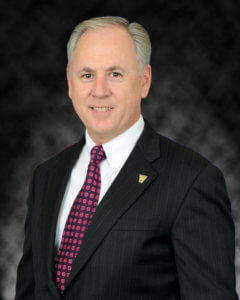 By Dan Gephart, February 2, 2021
By Dan Gephart, February 2, 2021
This is the third article in our Transition Talk series, where members of the FELTG Faculty share their advice on how to best work with presidential appointments and thrive under a new administration. See our previous article in the series:
Joe Schimansky (pictured here), former executive director of the Federal Service Impasses Panel, still regrets how he handled a long-ago meeting with a newly confirmed political appointee.
Joe was asked a question about the FSIP’s processes. After a purposely succinct response, the appointee accused Joe of answering with a variation of “because that’s the way we always do it.”
“To be clear,” Joe explained. “That’s not what I said, but how she interpreted what I said. At that point, I should have responded by indicating that the FSIP’s processes have evolved over many years for sound practical reasons.”
In deference to the appointee’s position, Joe did not respond. He learned the hard way that it often falls on career staff to set the record straight.
“Political appointees often come into their first meetings with their newly acquired professional staffs after having been told how badly the particular organizations they are now responsible for leading were run by their politically appointed predecessors,” he said.
During one transition, a higher-up in a federal sector union had met with President Clinton’s new FSIP chairman and “spread poorly informed allegations” about how long it took the previous administration to resolve impasses.
“When I met with my new boss, her head had already been filled with horror stories about how incompetent her newly inherited staff was at fulfilling its mission in a timely manner,” Joe said. “I was fortunate to have a new boss who had been a career fed and understood the dynamics of transitions.”
Joe was given time to research the allegations and found a legitimate explanation for all of the delays. But you’re not always going to work with appointees with Federal backgrounds. Joe offered some other worthwhile advice.
DG: What is your best advice for FELTG readers working with new presidential appointees?
JS: When dealing with new presidential appointees, the best advice I can think of is to strive to add value to their lived work experience. How you do that usually depends on the appointee’s understanding of the mission of your agency and the portion of that mission your particular part of the organization is responsible for. The typical way to assess this is by preparing detailed briefing materials that cover the main areas of your professional responsibilities and to schedule a reasonable time period to present the material.
Always remember you are engaging in a dialogue with the appointee and not merely presenting a stale lecture. Engaging in a dialogue allows the appointee to ask questions that will inform you of what the appointee understands already and what they may not grasp about the limits of their authority.
In this regard, you should be attentive to how the briefing is being perceived. I recall a briefing that I and the rest of my staff prepared for a group of newly appointed Impasses Panel members. It became clear early on that the material was far too detailed for the audience — part-time presidential appointees, most of whom had very little knowledge of how the Federal sector impasse resolution process works. The staff quickly perceived that the presidential appointees’ eyes were glazing over as we dug deeper and deeper into the FSIP process. The best response in this circumstance was to shorten the length of the briefing and to highlight only the most important points you want them to come away with. Opportunities to “teach them up” would be plentiful over the next four years.
DG: What is the most important skill necessary to survive and thrive in a new administration?
JS: The first skill that popped into my head was “active listening” defined as “where you make a conscious effort to hear not only the words that another person is saying but, more importantly, the complete message being communicated.” To do this, you must pay attention to the other person very carefully, particularly to his or her body language and non-verbal cues. I would suggest that most career management officials meeting with their newly appointed political bosses have reached that higher level in their organizations because they were already accomplished active listeners, but I’m sure there are exceptions. Through active listening, a career civil servant is more likely to add value to a political appointee’s lived work experience. If you do that, you can survive and thrive in a new administration.
Joe Schimansky will also be one of the presenters at FLRA Law Week. Joe is available to provide training to your agency on topics such as employee accountability, MSPB and EEO law, discipline, and much more. If you’re interested in bringing Joe Schimansky to your agency for training, email Gephart@FELTG.com

 Faculty’s Faculty Staff Lounge is filled with instructors who are engaging, smart, and experienced. And for many of our instructors, their experience includes working through more than a few Administrative transitions. Several of these instructors have offered to share their advice and guidance for a series of articles we’re calling Transition Talk.
Faculty’s Faculty Staff Lounge is filled with instructors who are engaging, smart, and experienced. And for many of our instructors, their experience includes working through more than a few Administrative transitions. Several of these instructors have offered to share their advice and guidance for a series of articles we’re calling Transition Talk.